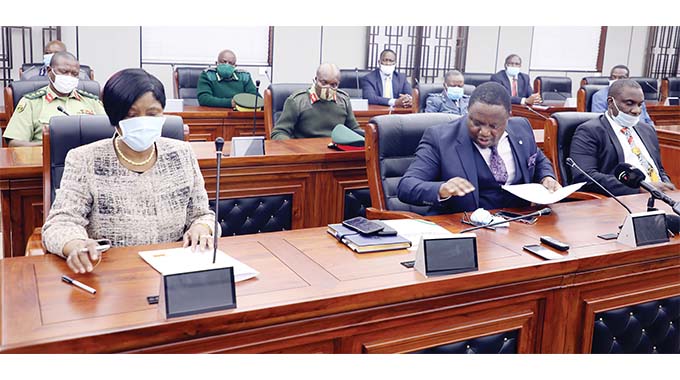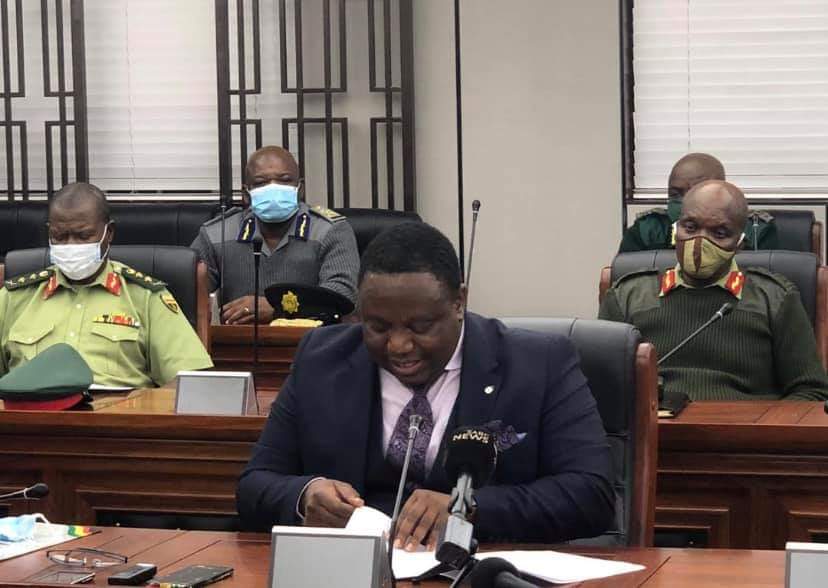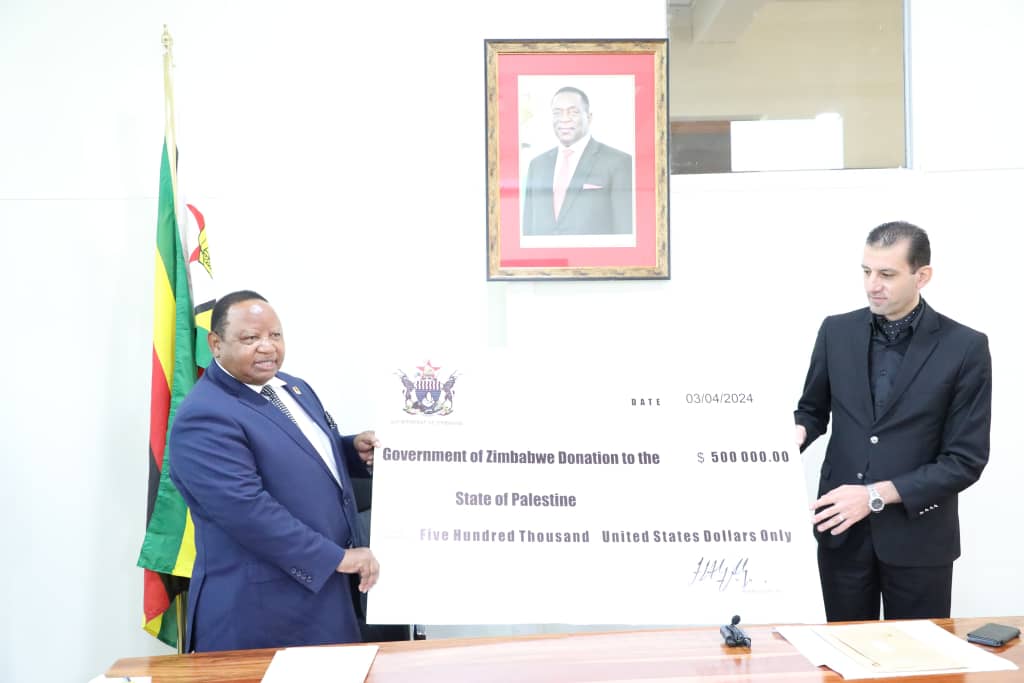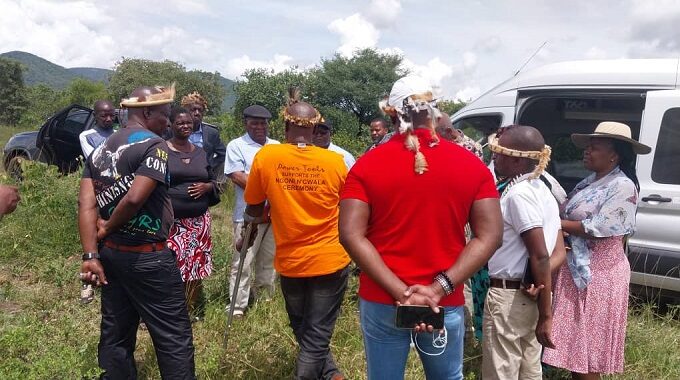
Zimbabwe’s security chiefs yesterday dismissed rumours of an imminent military coup in Zimbabwe, being peddled on dubious online platforms, as a desperate case of agenda setting by the opposition, disgruntled former Zanu-PF members and Western governments through their local embassies.
They urged Zimbabweans to be wary of plots to create instability and to undermine the authority of the Government, warning that those engaging in treasonous acts would be punished.
In a strongly-worded statement issued at a media conference yesterday evening by the Working Committee of the National Security Council of Zimbabwe, the security establishment said it had noted with “grave concern”, a recent upsurge in rumours aimed at tainting the image of President Mnangagwa and to render the country ungovernable.
Home Affairs and Cultural Heritage Minister Kazembe Kazembe issued the statement on behalf of the council and in the presence of Defence and War Veterans Affairs Minister Oppah Muchinguri-Kashiri, State Security Minister Owen Ncube and security commanders.
Service chiefs present were Zimbabwe Defence Forces Commander General Phillip Sibanda, Zimbabwe National Army Commander Lieutenant-General Edzai Chimonyo, Air Force of Zimbabwe Commander Air Marshal Elson Moyo, Police Commissioner-General Godwin Matanga, Zimbabwe Prison and Correctional Service Commissioner-General Paradzai Zimondi, and Director General of the Central Intelligence Organisation Isaac Moyo.
Home Affairs and Cultural Heritage Permanent Secretary Aaron Nhepera, Defence and War Veterans Permanent Secretary Ambassador Mark Grey Marongwe, and Information, Publicity and Broadcasting Services Permanent Secretary Nick Mangwana also attended the media briefing at Munhumutapa Building.
“The Government of the Republic of Zimbabwe has noted, with grave concern, a recent upsurge in rumours suggesting an imminent military coup d`etat in the country,” said Minister Kazembe.
The Government wanted through the agency of the Working Committee of the National Security Council, convened in terms of Section 209 of the constitution “to unequivocally debunk and dismiss these rumours with the contempt they deserve.”
Minister Kazembe said the committee had identified those behind the falsehoods and these included former senior Zanu-PF member Saviour Kasukuwere and MDC-Alliance deputy chairman Job Sikhala.
“Government would like to sternly warn purveyors of this medley of falsehoods, who include characters such as Saviour Kasukuwere, Job Sikhala and a coterie of their accomplices who we are aware of, not to cry foul when the long arm of Zimbabwean law catches up with them in due course,” said Minister Kazembe.
Some preachers provoking unrest through religious sermons were said to be part of the destabilisation agenda. They were part of a group of civil society players, diplomats, opposition politicians and online media platforms believed to have been recruited to push for an ill-fated National Transitional Authority.
“This narrative, which also sets an agenda for and promotes negative political activism, including coordinated fake abductions and media campaigns, has of late roped in several self-proclaimed local and international prophets. These include one US-based Nathan Humbryd of the so-called Miracle Ministries, Talent Chiwenga a self-styled rabid anti-Government Harare First Street preacher, Simon Chiloh of the so-called Deeds of Christ Ministries and a few others,” said Minister Kazembe.
Some of the online media platforms that had been roped into the regime change agenda included Gambakwe Media, Nehanda Radio and ZimEye.
Zimbabweans were reminded that conversations around leadership change will only be tolerated in the ballot box during the 2023 election.
Government said it was awake to the plight of workers in the country, including civil servants and uniformed forces, promising to leave no stone unturned in efforts to improve their lives.
President Mnangagwa would not be distracted by these rumours from delivering the people’s mandate which he and the ruling Zanu-PF party resoundindly secured in the 2018 Harmonised Elections.
Zimbabwe was a constitutional democracy that proudly boasted an evolving electoral culture that was growing stronger with every election undertaken since 1980.
The National Security Council consists of the President as chairperson, the Vice-Presidents and such Ministers and members of the security services and other persons as may be determined in an Act of Parliament.
According to the constitution, its functions are to develop the national security policy for Zimbabwe and to inform and advise the President on matters relating to national security.
The council also exercises any other functions that may be prescribed in an Act of Parliament.
The commanders of the security services must provide the National Security Council with such reports on the security situation in Zimbabwe as the council may reasonably require.






